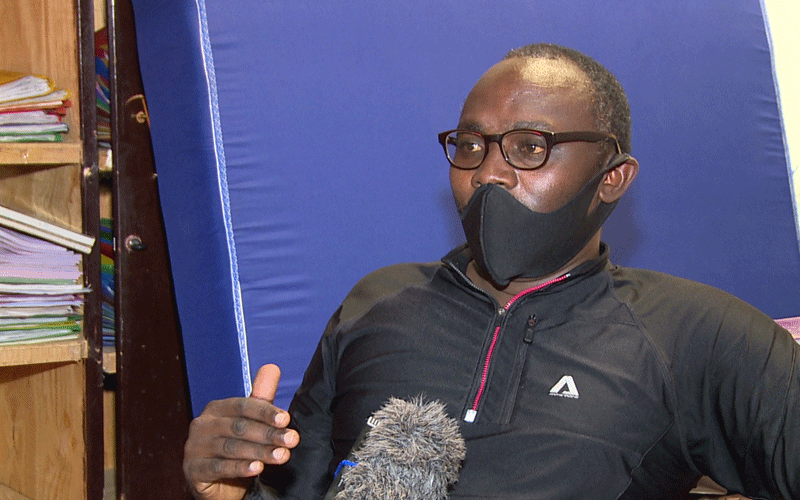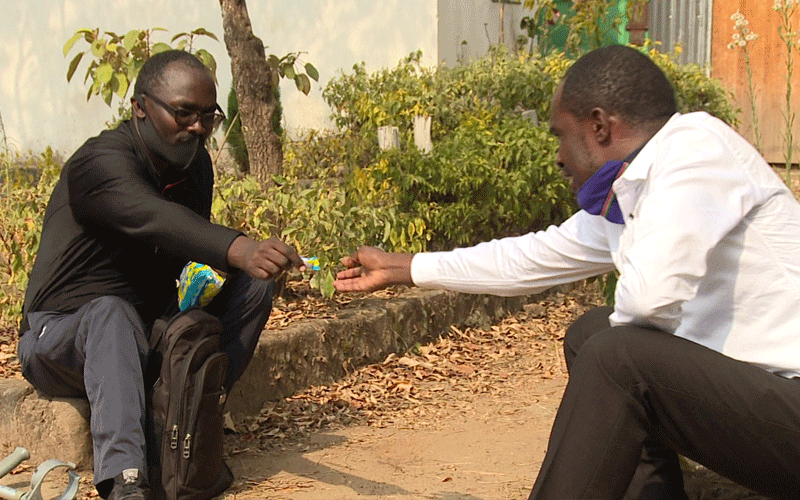Covid-19 turns school owner to sweets hawker
By Mathew Ndungu, August 20, 2020When you meet George Mwangi in the streets of Juja, Kiambu county hawking sweets and he tells you that he was once a proprietor of a school before Covid-19 pandemic hit the country in March, you are bound to take his story with a pinch of salt.
But when he takes you to the private school in Witeithie village he used to run only six months ago, then the stark reality of how the economic and social impact of the disease has changed his life is clear to see.
St Georges Cornerstone School, an institution he founded in 2015 after witnessing a shortage of schools in the locality, was rendered insolvent due to the challenges occasioned by the pandemic.
When he started the school, the area had no secondary school, save for Mang’u High School, a national school which most parents from the area could not secure slots or afford owing to the level of poverty.
The parents are forced to do hard labour in construction sites, flower farms and quarries to raise school fees for their children.
“We opened in June 2015 and most Form One students from this area had not joined school and had lost hope.

We, as a result, came up with a policy to have the parents pay school fees in kind. Some who could not raise money could surrender stone blocks, ballasts or offer to work in the school,” narrated Mwangi.
Initially, Mwangi who lives with clubfoot condition, a birth defect that makes his feet appear to be rotated internally at the ankle, could also provide uniforms to students for the vulnerable families.
When the government ordered for closure of all schools in March when the country recorded the first Covid-19 case, the 148 students were sent on an indefinite holiday, meaning that he had no other source of income.
He, therefore, could no longer sustain the seven teacher he had employed and most left for their rural homes while others went into construction sites and quarries in the area to make ends meet.
Having no other source of income, Mwangi, a 38-year-old father of three said it was not easy to run the school, leave alone provide for his family.
“We did not have cash reserves to transition as others are doing. We thereby had to face reality.
I was even unable to pay my rent. My wife who was working as a teacher was also rendered jobless,” he said.
He said that after a month, the family was forced to move to a small house and sell some house appliances to survive.
New residence
Even after moving to a cheaper house, economic hardships worsened, forcing him to send his family upcountry as he could no longer sustain them.
“This is a year whose main focus is to stay alive. I don’t send my family money and they now live at the mercy of relatives. It’s sad,!” he said.
Mwangi said he could not afford to pay the school watchman who had been retained for security purposes.
Economic challenges compelled him to move to the school, which he turned to his new residence.
“My office is my new home. I had to stop the services of the school watchman as I could no longer pay him,” he said.
Mwangi turned to selling sweets in the locality, a job he says cannot sustain him.
From the business, Mwangi said he makes between Sh100 and Sh200, which he uses to buy food for his survival.
“I don’t make enough to expand the business. The little I make is only enough to put food on my table.
I hope the virus will end soon so that I can go back to my normal life,” he said. Mwangi said watching the seven teachers he had employed suffer, really tugs at his heart.
“I witnessed as my teachers were kicked out of their rented houses by the landlords due to delayed rent payment, but I could offer them no solutions.
It’s sad that most of them were forced to turn to construction sites to work as casuals while others went upcountry and started farming,” he said.
Peter Owino, a teacher at the school said that after the institution was closed, he has worked in a quarry and cyber café to make ends meet.
Mwangi is now calling on well-wishers to help keep his dream of supporting children from vulnerable families alive.
Mwangi also hopes that his school will be listed among the 3,000 private institutions that are set to benefit from a Sh7 billion concessional loan from the government to support infrastructural development in readiness for schools reopening in January.
According to Education Cabinet Secretary George Magoha, the loan will be availed at an interest rate of between 2.5 and 3.5 per cent.
Lost hope
The fund is expected to help learning institutions improve areas such as installation of ICT systems to ensure learning continues during the phased reopening of schools.
According to Regina Wambui, a parent at the school, the village was in dire need of a learning institutions as the nearest institution is kilometres away.
The school, she said eased access to education for their children as they could travel kilometres away.
“I have two children in the school and I can tell you that this institution breathed life into this village.
Most of our children had lost hope of ever joining secondary schools owing to the fact there was no school nearby,” she said.
